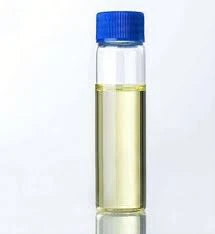dtpmp
The Impact of DTPMP on Water Treatment and Industrial Processes
DTPMP, also known as diethylenetriamine penta(methylene phosphonic acid), is a powerful chelating agent widely used in various industrial applications, particularly in water treatment processes. As industries evolve and face challenges related to water quality and resource management, the role of DTPMP has gained prominence due to its unique chemical properties and efficiency in complexing metal ions.
Understanding DTPMP
DTPMP is a phosphonate compound characterized by its ability to bind with metal ions, which helps in controlling scale formation, corrosion, and other water-related issues. Its structure features five phosphonic acid groups that effectively coordinate with divalent and trivalent metal ions, making it highly effective in preventing unwanted precipitation in water systems. The stability of these complexes significantly reduces the adverse impacts of metals in industrial processes.
Applications in Water Treatment
One of the primary applications of DTPMP is in the treatment of water in cooling systems, boilers, and other industrial water systems. The formation of scale deposits due to hardness in water is a significant concern, as it can lead to operational inefficiencies and increased maintenance costs. By using DTPMP, industries can efficiently mitigate scale formation, ensuring smoother operations and extending the lifespan of equipment.
Furthermore, DTPMP is effective in controlling corrosion, which is another vital concern in water systems. Corrosion can lead to severe damages and losses, not only in monetary terms but also in terms of safety. The chelating action of DTPMP helps stabilize metal ions in solution, thereby minimizing the risk of corrosive reactions within piping and machinery.
Environmental Considerations
With growing environmental awareness, the use of DTPMP presents a more eco-friendly alternative compared to traditional phosphates. While conventional phosphonate compounds may contribute to environmental issues like eutrophication in water bodies, DTPMP is considered biodegradable and less harmful. This characteristic underscores the importance of DTPMP in promoting sustainable practices in industrial water management.
dtpmp

Industries are increasingly under scrutiny to reduce their environmental footprint, and using DTPMP helps them comply with regulatory standards while still meeting operational requirements. It reflects the shift towards green chemistry, where the focus is on environmentally benign materials that deliver excellent performance.
Advantages Over Traditional Chemicals
Compared to other chelating agents, DTPMP offers several competitive advantages. Its high stability constant allows for more effective metal ion removal even in challenging conditions, such as high temperatures and varying pH levels. Moreover, DTPMP demonstrates lower toxicity levels, making it safer for both human health and the environment.
The versatility of DTPMP is another significant advantage; it can be used across various industrial sectors, including power generation, petrochemicals, textiles, and pulp and paper. This widespread applicability enhances its value, as industries can rely on a single compound to address multiple challenges.
Future Prospects
As regulations surrounding water treatment tighten and industries seek more efficient and sustainable practices, the demand for effective agents like DTPMP is expected to grow. Research and development in this field continue to advance, focusing on enhancing the efficiency of DTPMP and exploring new formulations that can provide even greater benefits.
Additionally, the global push towards reducing phosphorus levels in wastewater presents an opportunity for DTPMP to shine. With its ability to perform under stringent environmental conditions, it could serve as a cornerstone in future water treatment solutions.
Conclusion
In summary, DTPMP stands out as a significant player in the landscape of industrial water treatment. By effectively controlling scale and corrosion while being environmentally friendly, it offers a robust solution to the challenges faced by various industries today. As we progress into an era where sustainability is paramount, the role of DTPMP will likely expand, ushering in innovative approaches to water management that safeguard both industrial integrity and environmental health. Its versatility, safety, and efficacy make it an invaluable tool in the quest for cleaner and more efficient industrial processes.
-
LK-319 Special Scale And Corrosion Inhibitor For Steel Plants: Advanced Solutions for Industrial Water SystemsNewsAug.22,2025
-
Flocculant Water Treatment: Essential Chemical Solutions for Purification ProcessesNewsAug.22,2025
-
Isothiazolinones: Versatile Microbial Control Agents for Industrial and Consumer ApplicationsNewsAug.22,2025
-
Scale Inhibitor: Key Solutions for Water System Scale PreventionNewsAug.22,2025
-
Organophosphonates: Versatile Scale Inhibitors for Industrial Water SystemsNewsAug.22,2025
-
Scale and Corrosion Inhibitor: Essential Chemical Solutions for Water System MaintenanceNewsAug.22,2025





